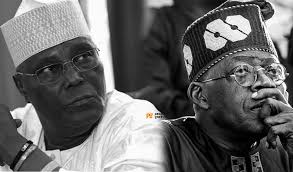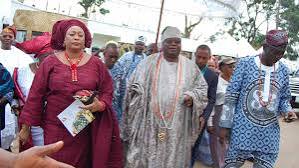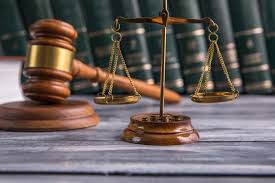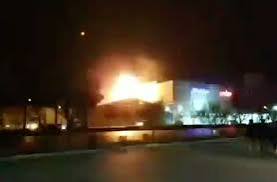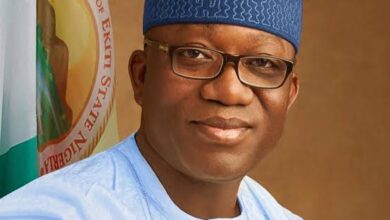The West and the hypocrisy of democracy – Toyin Falola
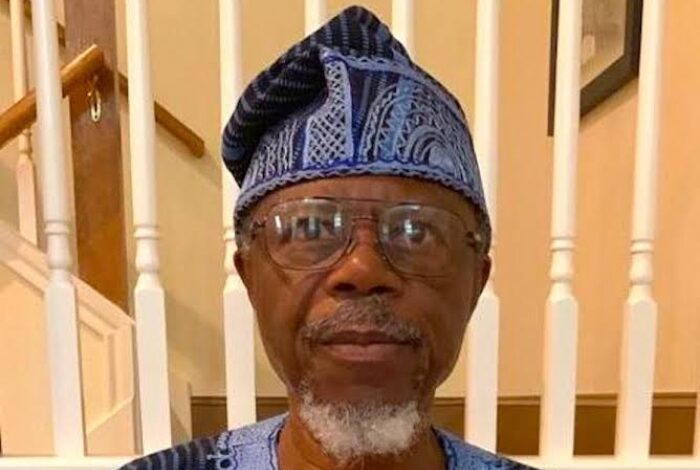
Toyin Falola
Western deception has been with Africa forever.
1493: Pope Alexander VI issued a papal bull, Inter Caetera, proclaiming the right of Spain and Portugal to enslave Africans and own the land. They were subjects. They stole your people and your land.
1885: Africa was a Dark Continent. It required colonisation to become civilised. Europe would bring change and civilise Africans. They stole your raw materials and truncated your self-development.
1940: When over a million Africans fought in Europe, North Africa and the Far East during the Second World War, the West convinced them they were dying for freedom and democracy. But where in Africa do they receive freedom and democracy? Indeed, Apartheid was inaugurated in 1948 in South Africa.
When will this deception come to an end? So, Gabon and Niger were democracies before the 2023 coups? You must be using the wrong dictionary to define democracy. Cameroon under the invalid Paul Biya is a democracy? You must be confusing the Mali Empire with the modern country of Cameroon. And the presidents who rule for as long as they want practising democracy?
You need a little education.
Recent developments in Africa’s political space, particularly the growing number of military takeovers, have informed fresh queries around the expressions of neo-colonialism in Africa and the commitment to liberal democracy as the ideal political model for the region. The point of reference for these queries is the ceremonial reactions from the acclaimed “champions of democracy” in the West, who waste no time issuing condemnations at every instance of “democratic failure” on the continent without any actual commitment to ensuring that power indeed lies with the people. Not only have these champions of African interests – the United States, Britain and France – touted democracy as the best system of political organisation to achieve political stability and economic prosperity in Africa, but they have also prosecuted wars, allegedly in its defence, that have cost millions of lives and destabilised entire regions. However, it is not enough to accuse our benevolent friends in the West of hypocrisy without providing compelling proof of double-dealing in delivering their duties as democratic crusaders. After all, in a democratic setting, all are innocent until proven guilty.
As a philosophy of government, democracy has existed since the Greco-Roman times. However, its foray into Africa can be traced to the eve of independence when Britain and France introduced forms of local representation as concessions to indigenous demands for independence. Thus, from 1959, parliamentary elections and other democratic institutions started to become commonplace on the continent. But, as it would turn out, this democratic experiment, which formed part of the third (global) wave of democracy, was to be short-lived – derailed as it was by fluctuating Western interests on the continent.
Guiding Western interest in Africa from the 1950s was the ideological war between the West (mainly the US) and the Soviet Union. The “Cold War”, as it came to be known, was the first incident to unmask the real intentions of the West for post-colonial Africa. In their quest to emerge as the world’s sole superpower, the US and the Soviet Union, who actively strove to undermine each other’s influence by, among other things, advancing their political ideologies around the world, turned to Africa as another important frontier of conquest. While the Soviet Union armed African revolutionary movements against their Western colonial overlords and provided support to openly communist governments, Washington concluded that, to effectively check the spread of Soviet influence on the continent, it was more expedient to enthrone biddable leaders in African states than it was to woo them with any ideological arguments or economic incentives.
Anxious to ensure power was handed over to reliable politicians, Britain and France became eager participants in the US policy in Africa. Together, the US and its allies targeted venal local strongmen, preferably with military backgrounds and authoritarian tendencies, who, in collaboration with its intelligence agencies, ousted legitimate/democratic governments. Notable victims and beneficiaries of this plot included (in the former category) Kwame Nkrumah of Ghana, Patrice Lumumba of Congo DRC, Sylvio Olympio of Togo and (in the latter category) Idi Amin of Uganda, Mobutu Sese Seko of Congo DRC and Gnassingbé Eyadema of Togo, to mention a few. Consequently, thirty-three African countries that achieved independence between 1956 and 1970 became authoritarian immediately or not long thereafter.
Another demonstration of the complete disregard that the West has for democracy, peace/stability and human rights in Africa is its willingness to engulf the entire region in conflict so that it can achieve its “strategic interests”. Once again, we begin from the Cold War era where, having recently come out of a highly destructive war in Europe (in 1945) and being cautious of engaging in another, the West and the Eastern Bloc turned Africa into the site of their proxy wars. In southern Africa, where the US considered both Angola and Mozambique as areas of “strategic interest”, Washington armed the 200,000 Portuguese conscripts, who went on to fight a protracted war against local nationalist revolutionaries, with imported weapons, which included defoliants and napalm. In Angola, the US, in cooperation with Apartheid South Africa, backed the National Union for Total Independence (UNITA) against the country’s (Soviet-backed) leading national liberation front, the Popular Movement for the Liberation of Angola (MPLA). There were also similar cases in northern Africa where Sudan was funded and armed by the US against Egypt and Ethiopia, who had also pitched their tents with Moscow. These conflicts and the resultant proliferation of arms saw the loss of millions of African lives from war and famine and a general destabilisation of the region.
While the West cannot be said to have been directly involved in all the occasions of transition from democratic to authoritarian rule, in more than a few instances, the leaders of newly independent democratic/multi-party African states seized the opportunity of Western patronage to quickly switch to one-party/despotic rule. In other cases, it was the corruption, resource mismanagement, “tribalism”, patrimonialism, clientelism and imperialism perpetrated by a Western-backed ruling political class which formed the basis of military takeovers (coups). Nevertheless, in this atmosphere of quasi-democratic rule, full-fledged despotism, military rule and Apartheid – where national resources were siphoned by kleptocratic regimes and millions of Africans either became refugees or died as a result of civil wars, hunger, and human rights abuses – our Western “friends” were content to look the other way if the government in place proved itself an ally of Washington.
Perhaps the most glaring example of the West’s democratic hypocrisy in Africa was its age-long support for the highly racist and politically repressive Apartheid regime in South Africa. Like the French, who were able to cajole Washington into believing that they were fighting communist-backed insurgents in Algeria, the South African Apartheid regime, for forty years, posed as the last bastion against communists in Africa – an attitude that was able to secure a steady flow of Western arms. This, alongside the West’s tacit approval, allowed for one of Africa’s most despicable shows of human debasement, carried out in the name of imperialism and racial superiority. After all, as President Ronald Regan remarked in 1981, South Africa was “essential to the free world in its production of minerals we all must have”.
The end of the Cold War changed Western attitudes towards Africa. Without the Soviet threat, the West leaned more towards development diplomacy and foreign aid regimes as the main thrust of its foreign policy in Africa. Foreign aid to Africa, however, turned out to be a Trojan horse. Already saddled with the task of building vibrant economies while also harmonising the aspirations of the different ethnic nationalities which characterised them, African countries, especially in Francophone Africa, also had to grapple with the undermining economic and political agreements they had been coerced into signing with their erstwhile colonial overlord as a condition for independence and continued patronage. To make matters worse, some African countries were, at the end of the Cold War, either fighting or had just come out of civil war. This, combined with the widespread corruption and mismanagement of national resources which characterised Africa’s tyrannical governments, put many African countries at the mercy of international monetary agencies (the International Monetary Fund – IMF – and World Bank) and their financiers whose aid they were now heavily dependent on.
At first, these Bretton Woods institutions were content to grant loans/aid, at debilitating interest rates no less, to authoritarian leaders who used them to perpetuate themselves in power and, in return, provided the former with mineral and other economic concessions. However, without the Cold War pressures, more emphasis was placed on the liberalisation and capitalist/free-market aspects of US foreign policy to guarantee return on investments. Soon enough, Structural Adjustments Programmes (SAPs) were introduced as a precondition for further loans/aid. Said adjustments, which demanded limited government intervention in the public sector, i.e. removing government subsidies in energy (fuel/gas), education and health care, brought untold hardships to already suffering populations. And as research has shown, poverty and non-tax revenue make for the ideal democratic environment. In other words, “When the government is not beholden to citizens for its funding, there is less accountability and less reason to democratise” (Tilly 1990). Instead, leaders simply use the “free” funding from natural resources (oil) and foreign loans/aid to buy enough support to remain in power.
Judging from the various expressions of Western interests in Africa over decades, it goes without saying that the West simply pays lip service to ideologies when convenient. Although many Africans might not object to the cynical pragmatism that has always guided Western foreign policy in Africa, I dare say they will not stand for the continued lies and hypocrisy that have characterised Western reactions to African developments. Even if the above-described instances of Western hypocrisy in Africa were to be argued to be in the past, it is a living past for Africa.
Africa, today, still has authoritarian governments in place whose political repression and human rights abuses go on unchecked by our democracy and rule of law-loving friends in the West. After being siphoned by kleptocratic governments, our commonwealth still finds its way to Western banks, where it sits and improves the local economy. Western interests continue to impoverish Africans and destabilise their regions. So, Africans are today saying to the West, its diplomats, presidents, and the other agents of its propaganda: “Your gambit in Africa is up. Our people are awakened!”
The West has sold you a fake product called democracy. Africans, your vote is not a sign of democracy. It is no more than a deception. There is no democracy without accountability. You are just voting thieves to power. There is no democracy without transparency. You are just using your votes in support of crooks and thugs. There is no democracy without good governance. Your vote is facilitating theft. Maybe you are waiting for your turn to steal. There is no democracy without development. Your vote is moving you back to the Stone Age. Even early humans knew when to replace stones with iron during the Stone Age. Africa, you don’t have a democracy. Anyone you have not appointed cannot disappoint you! Citizens are being deceived, and they are deceiving themselves. Organise yourselves at various levels and think of alternatives to democracy or, at the minimum, how accountability and transparency will form the core of your democratic practices. Your lifetime president is not a Democrat. He is an authoritarian kleptocrat far worse than the combination of Doris Payne, Stephane Breitwieser, Simon Leviev, Veerappan, Derek Smalls, Vincenzo Peruggia, Bonnie and Clyde, Natwarlal, Carl Gugasian, Frank Abagnale, Anna Sorokin, Albert Spaggiari, Jesse James, Anthony Strangis, and Bill Mason. Do you know these names?

